A New Pier to Support Year-Round Research on the Coast of Maine
As Maine’s premier educator of marine scientists and environmental researchers, the University of New England has proposed construction of a new, all-season pier on its Biddeford Campus to replace its existing seasonal research dock, allowing students and faculty to conduct their studies 365 days a year. The pier will also be used as the docking site for the city of Biddeford’s fireboat.
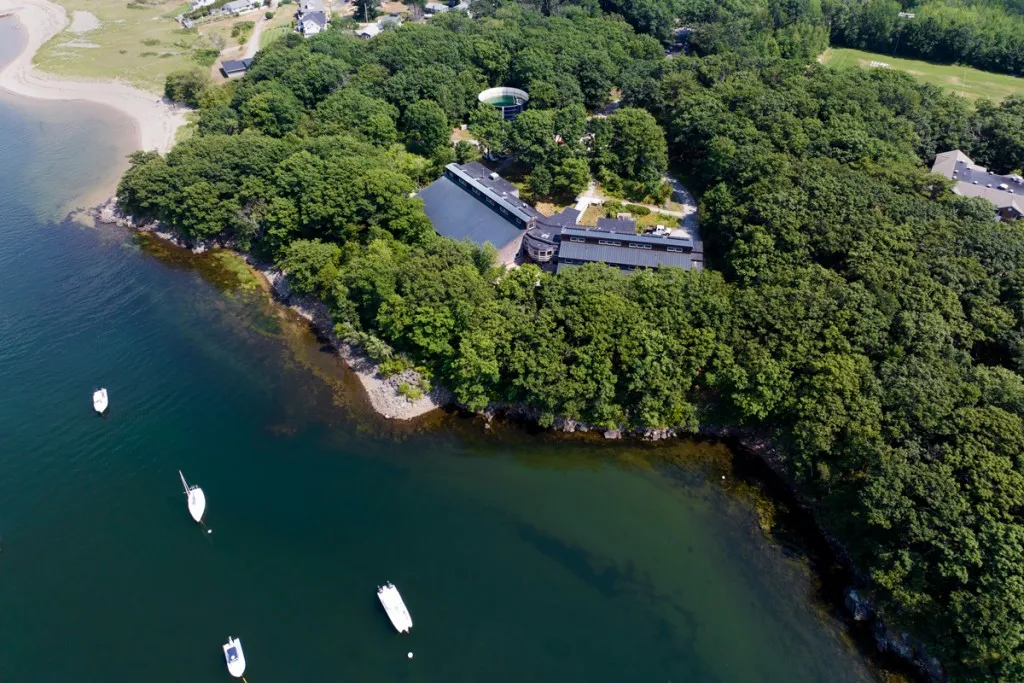
Located just steps from best-in-class laboratories in UNE’s Arthur P. Girard Marine Science Center, this new pier will support essential marine and environmental research during the winter season — including environmental DNA analysis, phytoplankton surveillance, and seaweed farming — and will provide additional storage space for new and existing research equipment.
Functionally Designed with the Saco River in Mind
The proposed pier has been the subject of years of study and has been revised based on feedback from local and federal experts, community members, and staff from the city of Biddeford. In consultation with its own marine science faculty and expert marine engineers, UNE analyzed nine possible locations for a new pier on its Biddeford Campus that would minimize impact on the environment, navigation for boats, and moorings along the river.
The site selected for the pier, known as “Site 7” in planning documents, was determined in consultation with the expert marine engineers to be the preferred location for the pier based on water depth (bathymetric) analysis and site boring studies.
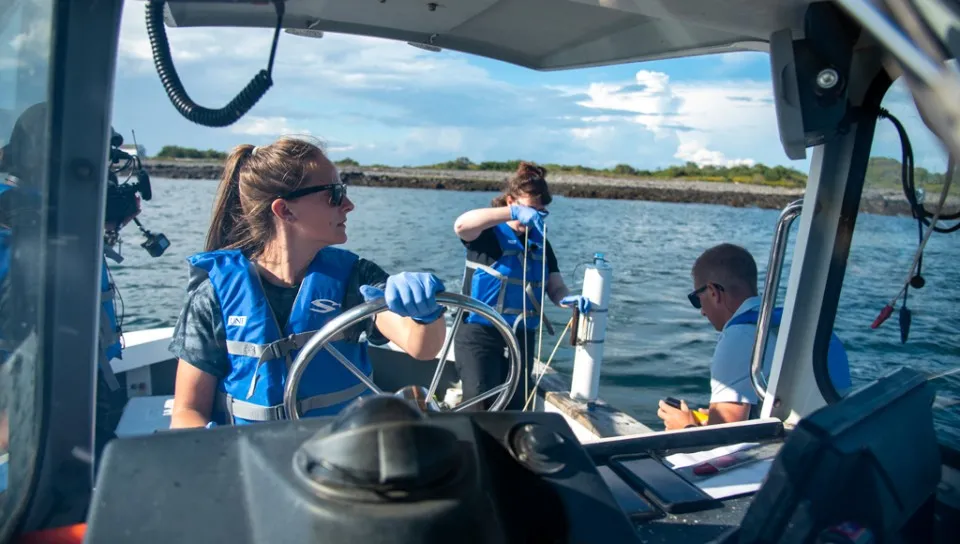
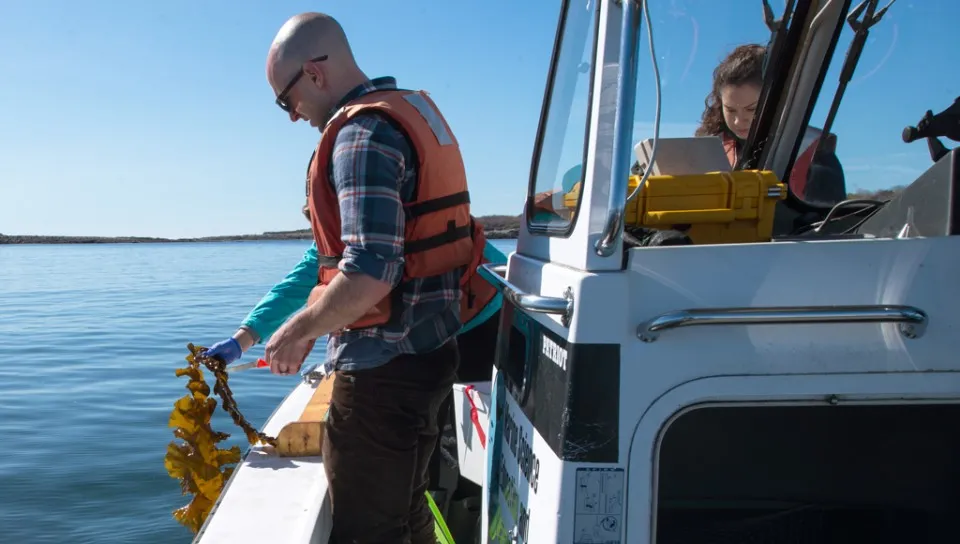
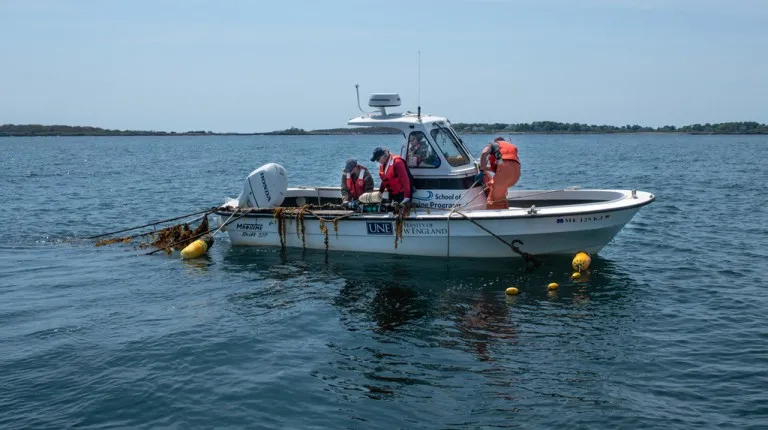

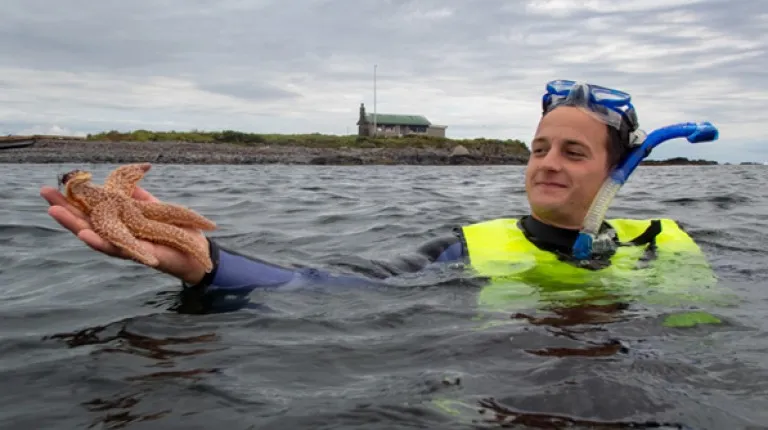
UNE has relied on those highly qualified marine engineers, who have recommended the current design and pier location because the pier as proposed at Site 7 achieves adequate water depth, provides all-tide safe navigation and berthing conditions, results in a structure of smaller overall dimensions in order to minimize impacts on coastal wetlands, and locates the pier at a site that is less exposed to adverse current and icing conditions.
The size and shape of the pier have been designed to reach adequate water levels at both low and high tides for navigation while minimizing impacts to the environment, Saco River water traffic, and existing moorings. UNE’s goal in constructing this new pier is to minimize disruptions to our valued neighbors while maximizing the benefits of increased, year-round water access for our students, who will care for the Saco River for generations to come.
What
A four-season research pier on the Saco River will provide docking for the University’s three research vessels, year-round access to the water for vital marine science and aquaculture research, and additional storage for research equipment.
The proposed pier will also serve as a permanent docking site for the city’s fireboat, allowing first responders to respond to maritime emergencies faster and more efficiently.
Size
The proposed pier will extend approximately 142 feet from the shore — where water depths are sufficient to support safe, all-tide navigation — and will be comprised of a 118.8-foot approach and attached 23-by-80-foot perpendicular dock.
Location
The pier is planned to be located behind the Girard Marine Science Center at a location commonly known as “Site 7.” This site is one of nine possible sites reviewed by UNE’s expert engineers and determined to be the most viable option to locate the pier based on water depth and site boring analyses, resulting in the least impact to the surrounding environment, navigation in the channel, and existing mooring locations.
The farthest extent of the pier will sit over 200 feet from the federal navigation channel, posing no risk to fishing and maritime operations along the Saco River.
Status
The application for the pier is currently under out for agency review.


